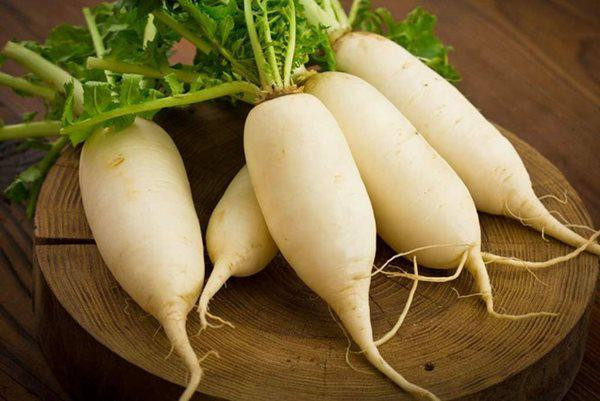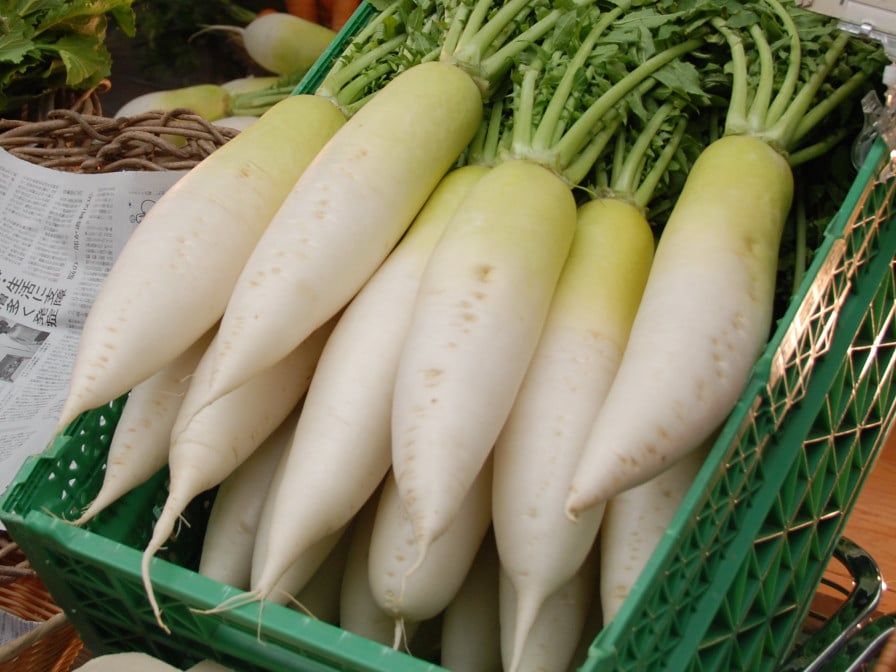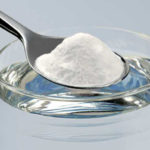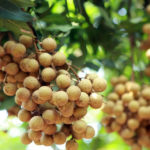According to the theory of Indian nutrition, beetroot is one of the “golden foods” that holds the secret to healing and improving health. Science has proven that this is the most nutritious vegetable among the commonly used vegetables in daily meals.
Sharing on VietNamNet newspaper, Doctor Bui Dac Sang (Vietnam Academy of Social Sciences, Hanoi Traditional Medicine Association) said that white beetroot has a crunchy texture similar to carrots, and each type has different flavors but usually has two main flavors: slightly sweet and spicy. It can be cooked in various ways such as braising, boiling, or steaming.
Aside from being a food, white beetroot is also a great source of nutrition for health. Doctor Bui Dac Sang mentioned that the abundant vitamin C and folate in white beetroot are good for the body, especially for the immune system. Furthermore, foods rich in folate are beneficial for the growth and development of children.

In traditional medicine, white beetroot has a sweet, slightly spicy, bitter taste, is neutral in nature, non-toxic, and has effects in treating cough, phlegm, diuresis, and promoting digestion, especially beneficial for preventing diseases in the winter.
Doctor Bui Dac Sang said that white beetroot can be used to support the treatment of certain diseases such as treating cold-induced hoarseness, coughs and asthma, gastric ulcers, and mouth ulcers.
Some health benefits of white beetroot:
Reduces cholesterol
Beetroot has been proven to have the ability to reduce cholesterol levels in the body. In a study, it was found that a diet high in beetroot can reduce serum cholesterol levels and neutral fat concentrations significantly, while significantly increasing HDL cholesterol (good cholesterol) levels.
Effective pain relief
The spicy compound in beetroot helps fight bacteria, enliven tendons and ligaments, and has effective pain relief. In the winter, if experiencing muscle aches or joint pain, you can directly peel the beetroot, slice the peel, and apply it to the painful area, or you can put the beetroot peel in a cloth bag for a warm compress.
Supports liver function and prevents cardiovascular diseases
Beetroot contains betaine, a bioactive compound that supports healthy liver function. When the liver functions properly, fats are efficiently broken down, helping with weight loss and preventing fatigue and nausea. Betaine, a nutrient found in sugar beets, helps reduce serum homocysteine. This is a risk factor for cardiovascular diseases.
Benefits brain health
A study at Wake Forest University has shown that the high nitrate content in beetroot can increase blood flow to the brain, thereby improving mental function, enhancing brain health, and even protecting brain cells for many years.
Anti-cancer properties
Beetroot is one of the best foods, rich in diverse nutrients: vitamin B, and various minerals. It has a high content of vitamin C, which helps the body counteract the negative effects of viruses.
Beetroot contains glucoside and beet oil, which can react with various catalysts and form a spicy flavor. Therefore, the spicier the beetroot, the more of this component it contains, and the higher its anti-cancer properties.

Prevents anemia
The natural vitamin B12 in beetroot helps promote iron absorption and is involved in hemoglobin synthesis, thus increasing the amount of oxygen in hemoglobin, which helps nourish the physical body and prevent anemia.
Prevents viral infections
Due to its high vitamin C content, beetroot has a natural cleansing effect on the body and enhances immunity. Therefore, consuming beetroot regularly helps prevent viral infections.
Anti-aging for the skin
Beetroot leaves are rich in vitamins A, C, especially with a higher content of vitamin C compared to other vegetables, helping to prevent skin aging, prevent the formation of dark spots, and keep the skin white and soft.



































